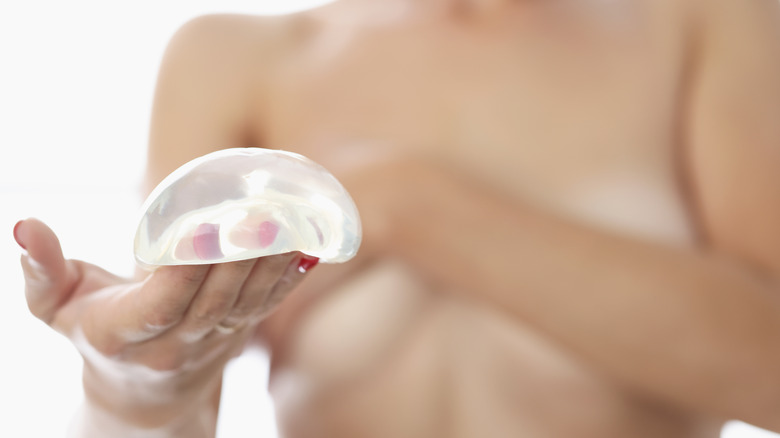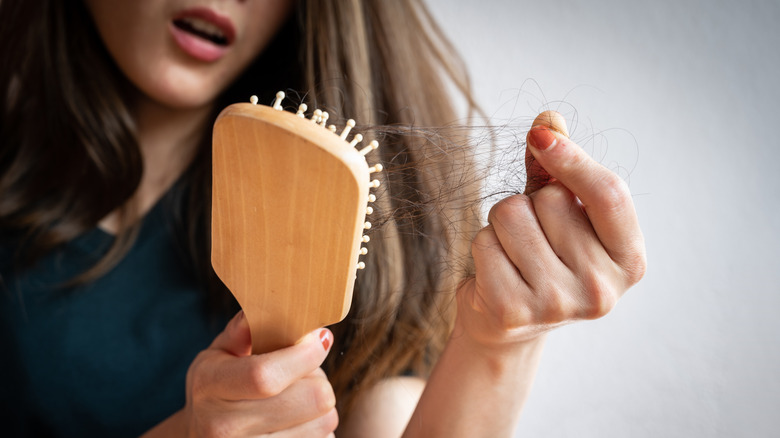What Is Breast Implant Illness?
When a mother of six went to doctors to have a breast tattoo removed, she was offered the first silicone breast augmentation in 1962 in a Texas hospital (via CNN). Since that time, breast implants became available to women looking for a boost in body image, improved self-confidence, or a "mommy makeover." According to a 2020 report issued by the American Society of Plastic Surgeons, breast augmentation was one of the top five cosmetic procedures that year. However, the number of breast augmentation surgeries decreased by 33% from the previous year, while breast implant removal surgery increased by 8%.
Although breast implants may have offered a solution for improving their outer appearance, some women have experienced complications and health issues after surgery. Breast implant illness (BII), also known as autoimmune/inflammatory syndrome induced by adjuvants (ASIA), is the term that doctors and women use to describe a wide range of symptoms that women experience after breast augmentation or reconstruction with implants (via BreastCancer.org).
Pay attention if you experience these symptoms
Breast implant illness has become commonplace for many women after augmentation. Women experiencing BII symptoms have formed Facebook groups to find emotional support, discuss concerns, and find solutions for symptoms that have decreased their quality of life. According to Medical News Today, women with breast implant illness have a variety of complications as a result of their surgeries: fatigue, sensitivity to sunlight, rashes, depression, trouble sleeping, nerve problems, joint pain, hormonal changes, and hair loss. Many of these symptoms have been linked to the development of autoimmune diseases such as scleroderma, fibromyalgia, and Sjogren's syndrome. Breast implant-associated anaplastic large cell lymphoma is a type of rare cancer that has been linked to breast implant augmentation (via MD Anderson Center).
Breast implant illness can affect women regardless of the type of implant. Some women experience symptoms as early as a few days after surgery, while it takes years for others. Breast implant illness is not officially recognized as a medical condition, but there is one leading theory on what may cause BII is a person's predisposition to immune reactions to the implant materials, which, in turn, create inflammation in the body (via BreastCancer.org).
The one thing that may stop breast implant illness
Since breast implant illness includes several symptoms, one may think that treating each individual symptom is the only answer for relief. However, breast implant removal may be the solution for entirely relieving or eliminating multiple symptoms.
A 2021 population-based study was published in the Archives of Plastic Surgery, where members of the Facebook group, Utah Breast Implant Illness, completed a survey designed to better understand how implant removal affected BII symptoms. The study concluded that the most common symptoms experienced were hair loss, fatigue, joint pain, and brain fog. Of the women that had their breast implants removed, 97% said that their symptoms were either fully or partially relieved.
Although the Food and Drug Administration (FDA) has approved saline and silicone breast implants, it encourages patients to make an informed decision before undergoing breast augmentation or reconstruction. According to the FDA, patients should communicate with their surgeons, know the health risks involved with breast augmentation or reconstruction, and understand the label warnings for the implants that will be used for your surgery.



